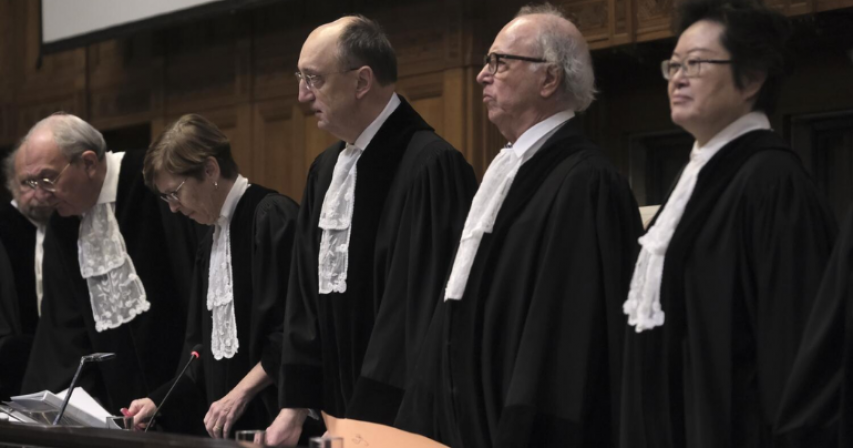ICJ Verdict: Israel Genocide Allegations Decision

The International Court of Justice (ICJ) is poised to make a crucial ruling on January 26, addressing the request for emergency measures against Israel. The case stems from accusations leveled by South Africa, contending that Israel's military operation in Gaza constitutes a state-led genocide. The upcoming decision by the 17-judge panel holds considerable significance, as it has the potential to shape the ongoing dynamics in the region and offer insights into the international legal stance on the conflict.
The United Nations' top court, the ICJ, issued a statement on Wednesday confirming that the ruling would be disclosed in court at 1200 GMT (4 pm UAE Time) on January 26. The timing of the decision underscores the urgency and gravity of the matter at hand, with the international community keenly awaiting the outcome.
The allegations of a state-led genocide by Israel have been a contentious issue, contributing to heightened tensions in the already volatile Middle East. South Africa's legal challenge, brought before the ICJ, seeks not only to draw attention to the severity of the situation but also to prompt the international community to take immediate measures to address the alleged violations.
The ICJ, as the principal judicial organ of the United Nations, plays a crucial role in adjudicating legal disputes between states and providing advisory opinions on legal questions referred to it by the General Assembly, the Security Council, or other UN specialized agencies and bodies. The upcoming ruling, therefore, carries the weight of potential legal ramifications and could set precedents for future cases involving similar allegations of state-led atrocities.
The 17-judge panel comprises legal experts from various countries, and their decision will be closely scrutinized for its legal reasoning and interpretation of international law. The ruling may address not only the specific allegations made by South Africa but also broader questions related to the use of force, state responsibility, and the protection of civilian populations in conflict zones.
The timing of the announcement also coincides with a period of heightened global attention on the Israeli-Palestinian conflict. The international community has been grappling with efforts to find a sustainable and just resolution to the longstanding issues in the region. The ICJ's decision may influence diplomatic efforts and shape the discourse surrounding the conflict, potentially impacting the dynamics on the ground.
As the world awaits the ICJ's ruling, the outcome will likely spark reactions from various stakeholders, including governments, non-governmental organizations, and the general public. The legal precedent set by this decision could have far-reaching implications for future cases involving allegations of state-led actions amounting to genocide, underscoring the court's role in shaping the landscape of international law.
In conclusion, the impending ICJ ruling on South Africa's request for emergency measures against Israel marks a pivotal moment in the ongoing Israeli-Palestinian conflict. The decision will be closely watched for its legal implications, potential precedents, and its broader impact on diplomatic efforts to address the complexities of the situation in the Middle East.
For More Related Updates Please Visit Our Official Website
By- Sahiba Suri






Comments